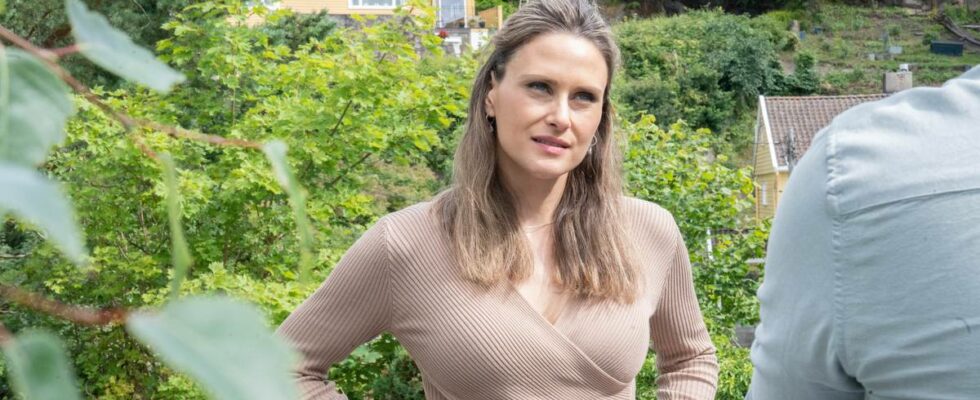The matter in summary The Liberal Party proposes to increase the VAT on meat by 3 per cent and reduce the VAT on fruit and vegetables by 3 per cent to encourage a healthier and more climate-friendly diet. Storting representative Ingvild Thorsvik (V) believes it is a political responsibility to make arrangements for people to be able to eat less meat. A survey shows that one in five Norwegians wants to cut back on meat. Storting representative Gro-Anita Mykjåland (SP) disagrees with the proposal and believes that the focus should be on lowering prices for people. Thorsvik also argues that plant-based food production requires less resources and land than animal food production, and can thus contribute to increased Norwegian self-sufficiency. Mykjåland, on the other hand, believes that higher meat prices will affect Norwegian food producers and reduce self-sufficiency. The summary is made by an AI service from OpenAi. The content is quality assured by news’s journalists before publication. – We do not mean that people should stop eating meat, but that we must eat less of it. It is then a political responsibility to facilitate it. Storting representative Ingvild Thorsvik (V) thinks so. At home in Mandal, the grill is fired up, and Thorsvik is busy seasoning a cauliflower. More meals without meat is something the politician wants. To achieve this, the party will make it more expensive to buy meat in the shop. At the same time, they will make it cheaper to buy fruit and vegetables. More expensive meat Today, food VAT is 15 per cent. The Liberal Party proposes to increase the VAT on meat to 18 per cent, while the VAT on fruit and vegetables is cut to 12 per cent. A proposal that the party has also previously opposed. Storting representative Gro-Anita Mykjåland (Sp) disagrees with that. – First and foremost, it is about us having to work to bring down prices for people now, she believes. Gro-Anita Mykjåland (SP) completely disagrees with Venstre’s proposal. Photo: Ina Marie Sigurdsen / news Bad economy – If meat becomes more expensive, won’t it affect the wallets of those who are already in a financially stressed situation? – We want to make it cheaper to buy and eat food that the professional authorities believe should be eaten more of because of health and climate, says the left-wing politician. Ingvild Thorsvik (V) does not believe that more expensive meat will be a problem for people who are already struggling financially. Photo: Vetle Hjorland / news The VAT increase is part of the Liberal Party’s budget proposal, which will be considered in the Storting in the autumn. – People should be allowed to decide for themselves what to eat. I think it’s a bad idea if we start taxing some goods more than others, says SP politician Mykjåland. More Norwegian-produced food A survey carried out by InFact on behalf of the Nation shows that one in five Norwegians wants to cut back on meat. – The dietary advice recommends Norwegians to eat less meat. Today we eat an enormous amount more meat than when I was growing up, says the left-wing politician. The Directorate of Health’s dietary advice 2024 Photo: Simon Skjelvik Brandseth / news Have a varied diet with lots of vegetables, fruit and berries, coarse cereals and fish, and limited amounts of processed meat, red meat, salt and sugar. Have a good balance between how much energy you take in through food and drink, and how much you consume through activity. Eat at least five portions of vegetables, fruit and berries every day. Eat whole grains every day. Eat fish for dinner two to three times a week. Feel free to also use fish as a topping. Choose lean meat and lean meat products. Limit the amount of processed meat and red meat. Make low-fat dairy products part of your daily diet. Choose cooking oils, liquid margarine and soft margarine, rather than hard margarine and butter. Choose foods with little salt, and limit the use of salt in cooking and on the food. Avoid food and drinks with a lot of sugar on a daily basis. Choose water as a thirst quencher. In addition to the health and climate perspective, Thorsvik believes that it is about increasing Norwegian self-sufficiency. – It requires less resources and much less land to produce plant-based food than it does to produce animal food, she says. Mykjåland believes that if meat becomes more expensive, it will rather contribute to reducing self-sufficiency. – It is clear that it will affect Norwegian food producers if something like meat becomes more expensive. Our goal must be to increase Norwegian food production, including meat, in order to increase self-sufficiency in Norway, she says. Published 24/07/2024, at 19.47
ttn-69
The Liberals want more expensive meat and cheaper vegetables – news Sørlandet – Local news, TV and radio

